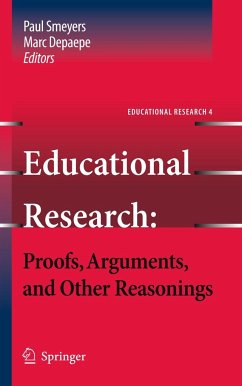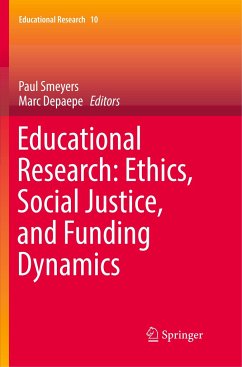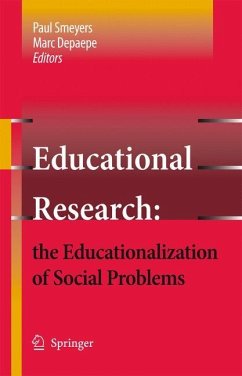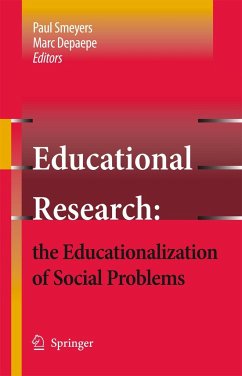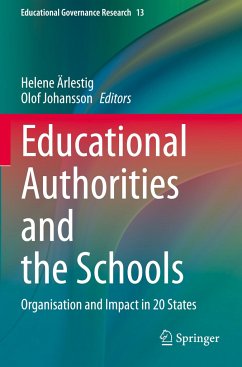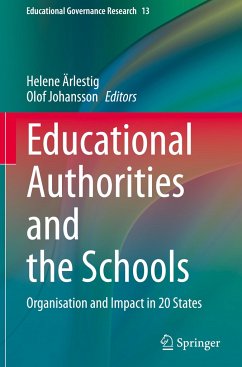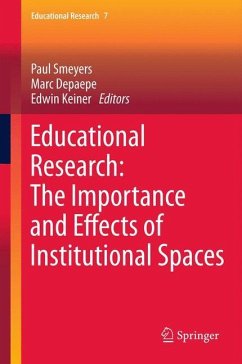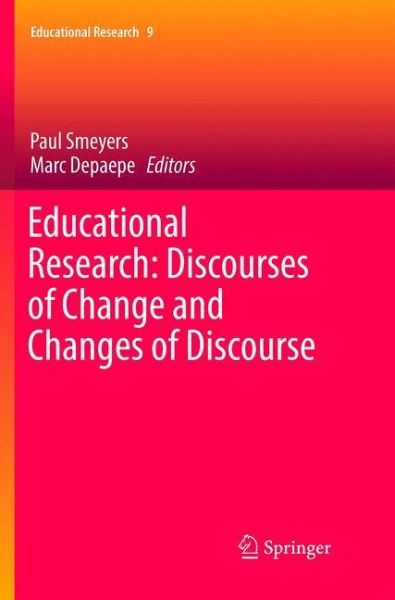
Educational Research: Discourses of Change and Changes of Discourse
Versandkostenfrei!
Versandfertig in 6-10 Tagen
76,99 €
inkl. MwSt.

PAYBACK Punkte
38 °P sammeln!
This collection addresses concepts and theories of change, contexts and functions of reform discourses, and fields of change in educational research. It examines a wide variety of issues such as girls' education in France, educational neuroscience, the professionalization in Child Protection, and mathematics discourses. It pays attention to the pervasiveness of crisis rhetoric in American Education Research, to the current university climate, and to perspectives for teacher education. The volume presents in-depth studies that integrate the perspective of history and philosophy of education.Edu...
This collection addresses concepts and theories of change, contexts and functions of reform discourses, and fields of change in educational research. It examines a wide variety of issues such as girls' education in France, educational neuroscience, the professionalization in Child Protection, and mathematics discourses. It pays attention to the pervasiveness of crisis rhetoric in American Education Research, to the current university climate, and to perspectives for teacher education. The volume presents in-depth studies that integrate the perspective of history and philosophy of education.
Educational research has been typically carried out within a discourse of change: changing educational practice, changing policy, or changing the world. Sometimes these expectations have been grand, as in claims of emancipation; sometimes they have been more modest, as in research as a support for specific reforms. This book explores the answers to such questions as: Are these expectations justified? How have these discourses of change themselves changed over time? What have researchers meant by change, and related concepts such as reform, improvement, innovation, progress and the new? Does this teleological and hopeful discourse itself reflect a particular historical and national/cultural point of view? Is it over promising for educational research to claim to solve social problems, and are these properly understood as educational problems? In doing so, it challenges prevailing ideas about the application of philosophy and history of education, and demonstrates the relevance of philosophical and historical approaches for the practice and theory of education and for educational research.
This publication, as well as the ones that are mentioned in the preliminary pages of this work, were realized by the Research Community (FWO Vlaanderen / Research Foundation Flanders, Belgium) Philosophy and History of the Discipline of Education: Faces and Spacesof Educational Research.
Educational research has been typically carried out within a discourse of change: changing educational practice, changing policy, or changing the world. Sometimes these expectations have been grand, as in claims of emancipation; sometimes they have been more modest, as in research as a support for specific reforms. This book explores the answers to such questions as: Are these expectations justified? How have these discourses of change themselves changed over time? What have researchers meant by change, and related concepts such as reform, improvement, innovation, progress and the new? Does this teleological and hopeful discourse itself reflect a particular historical and national/cultural point of view? Is it over promising for educational research to claim to solve social problems, and are these properly understood as educational problems? In doing so, it challenges prevailing ideas about the application of philosophy and history of education, and demonstrates the relevance of philosophical and historical approaches for the practice and theory of education and for educational research.
This publication, as well as the ones that are mentioned in the preliminary pages of this work, were realized by the Research Community (FWO Vlaanderen / Research Foundation Flanders, Belgium) Philosophy and History of the Discipline of Education: Faces and Spacesof Educational Research.





